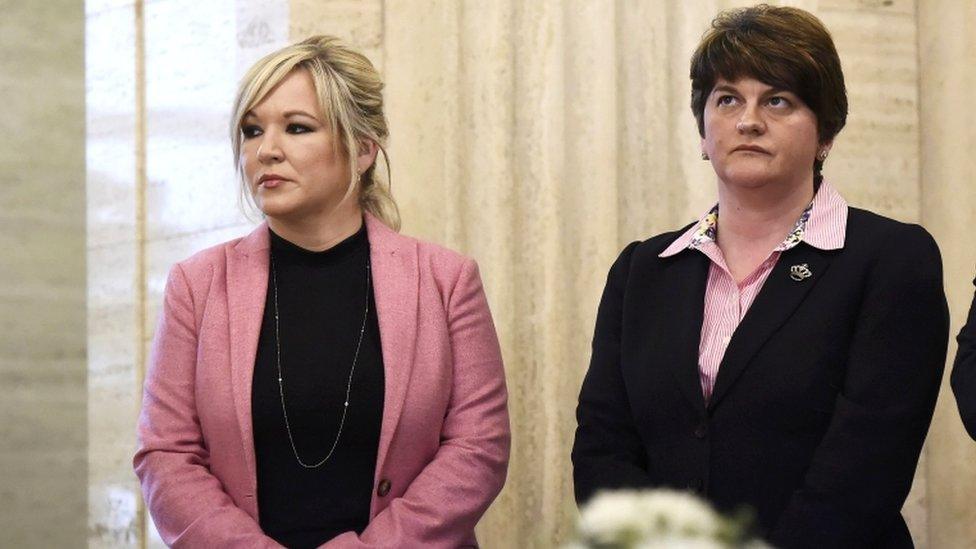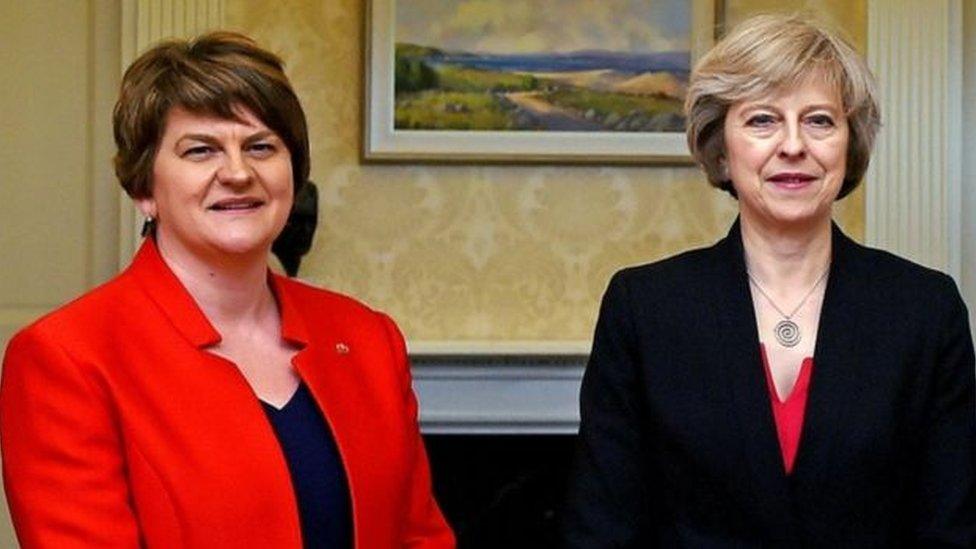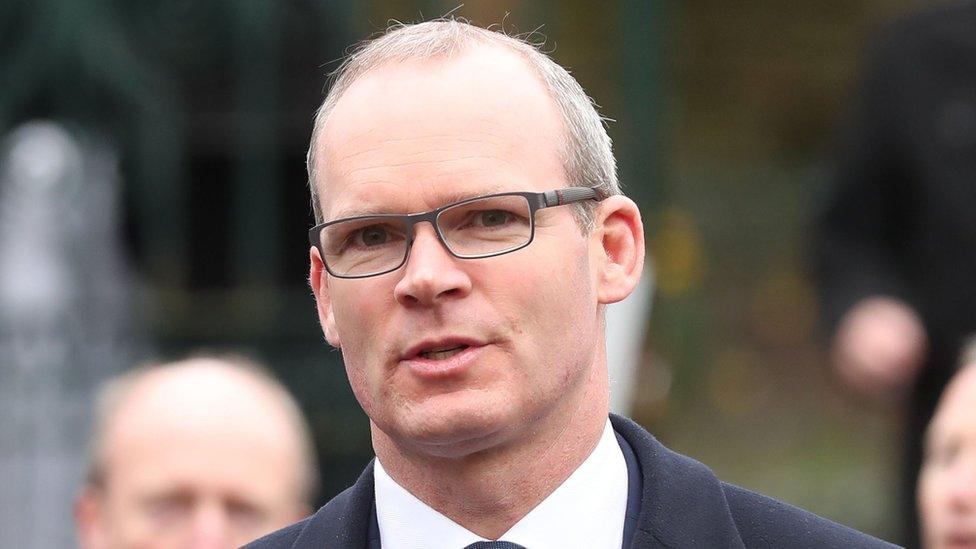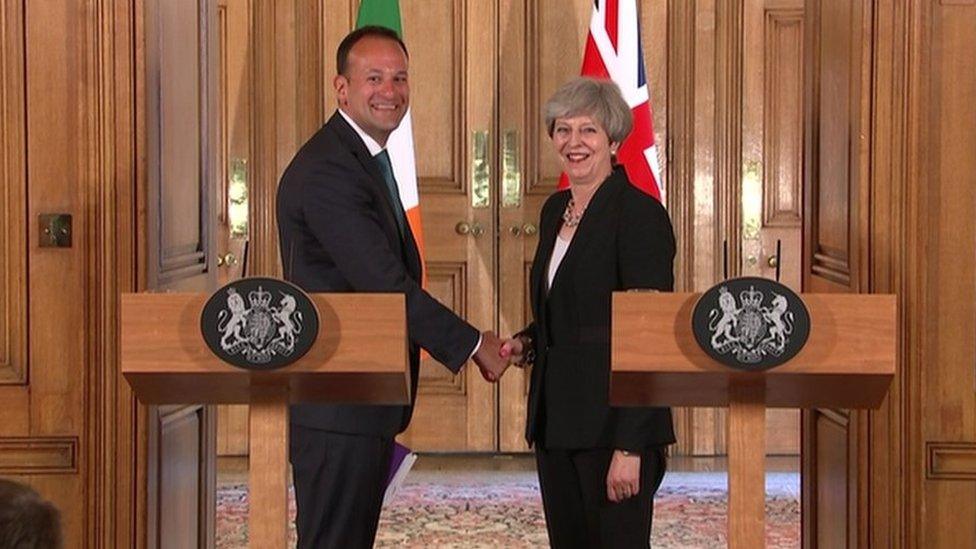Tory-DUP deal 'major for Stormont talks'
- Published
- comments

Sinn Féin's northern leader Michelle O'Neill and DUP leader Arlene Foster have until 29 June to restore a power-sharing executive
Any deal between the DUP and Conservatives over supporting a Conservative government could have big implications for the Northern Ireland talks, Sinn Féin has warned.
Gerry Kelly said it was his party's intention to re-establish the institutions.
"But that has to be on the basis of integrity and respect," he said.
He was speaking as talks to restore Northern Ireland's power-sharing institutions continue.
There are just nine days left before the government's deadline.
However, Mr Kelly said his party was not prepared to drop its demand that DUP leader Arlene Foster cannot become first minister while the inquiry into the RHI scandal continues.
Controversial issues
To focus minds, the government gave the parties a discussion paper setting out key areas for agreement. They were given until lunchtime on Tuesday to respond to the draft paper.
It includes changes to the petition of concern, equality and respect around the Irish language, Ulster Scots and an armed forces covenant.
It also suggests a public consultation on plans to deal with the legacy of the Troubles, and details ways of making Northern Ireland's government more accountable. Details of the paper were published by journalist Brian Rowan., external
The parties' written responses were collected by civil servants who will then work on a further document to be brought back to the talks table at a future date.
On Tuesday, the focus was on legacy and the government plans to put a bill out to consultation without any agreement around the controversial issues of national security.
However, the feeling is that agreement at Stormont will be stalled until after the parties get sight of any deal between the DUP and the Conservatives.
Ulster Unionist Party leader Robin Swann called on the DUP and Sinn Féin to clarify their intentions in the talks.
"I think to go into another period of direct rule or semi-direct rule is not good for Northern Ireland. We're looking at a health service that is spiralling out of control.
"We're looking at teachers and headmasters who don't know what their budget is going to be come September when there are children coming in through the classroom doors.
"We need to get Stormont up and running again on the 29th of June."
Shadow Secretary Owen Smith said the government still had to convince the Stormont parties it would be impartial in the talks.
"I've not yet had that reassurance from [secretary of state] James Brokenshire or heard it from the other parties," said Mr Smith.
"In the conversations I had with parties last week when I took on the post, they were still concerned that it would be difficult for the British government to illustrate impartiality and I still think they've got a job of work to do persuade people of that."
Deal or no deal?
Northern Ireland has been without a power-sharing executive since March and without a first and deputy first minister since January.

It is still not clear when Arlene Foster and Theresa May might sign off on a deal
The institutions collapsed amid a bitter row between the DUP and Sinn Féin about a botched green energy scheme.
The late deputy first minister, Martin McGuinness, stood down, in a move that triggered a snap election.
The parties have until 29 June to reach agreement and have been warned that if they cannot, direct rule could follow.
The deadline was set by Secretary of State James Brokenshire.
Meanwhile, the DUP will resume negotiations with the Conservative Party in London on supporting a Tory minority government.
The party has been locked in negotiations with the Tories for more than week but it is still not clear when they might sign off on a deal.
It was thought an agreement might be reached before the Queen's Speech on Wednesday, but the parties have refused to be drawn on a timeframe.
Conservative cabinet minister Chris Grayling has predicted a "sensible" deal would be struck, telling the BBC on Tuesday that talks were "going well" - and that the DUP did not want another election or Jeremy Corbyn in Downing Street.
- Published19 June 2017

- Published19 June 2017

- Published15 June 2017